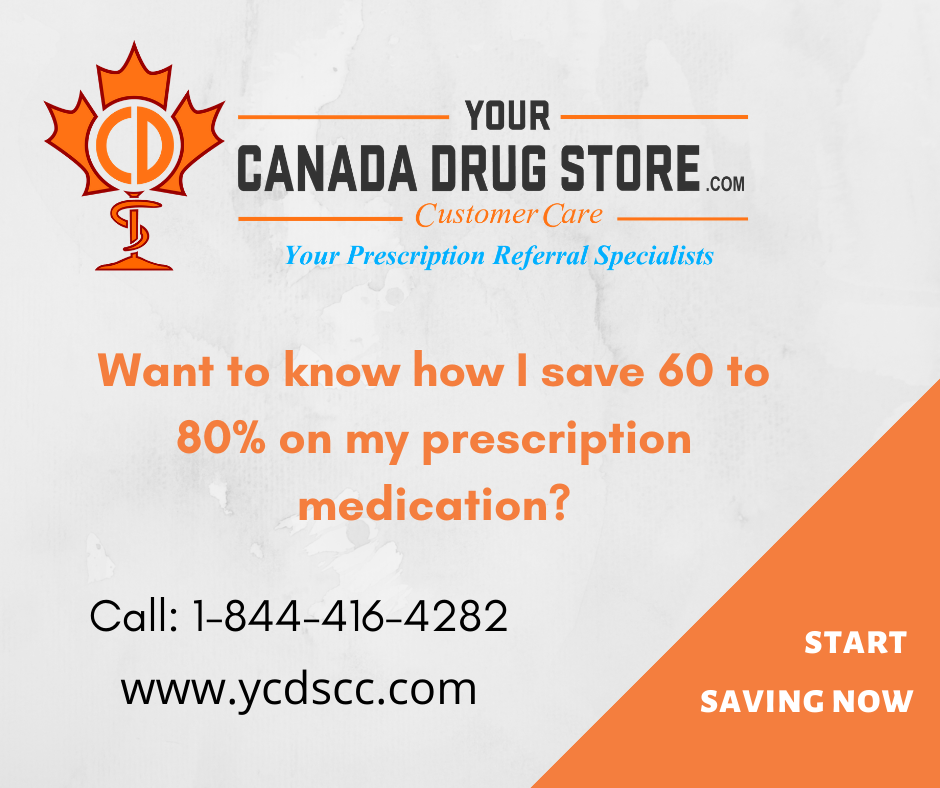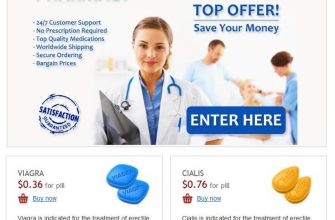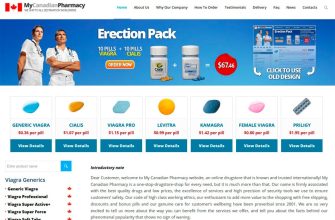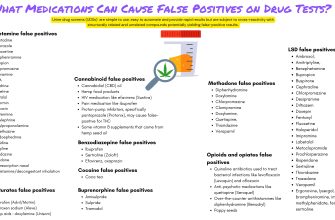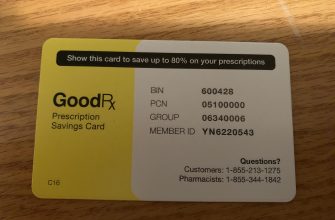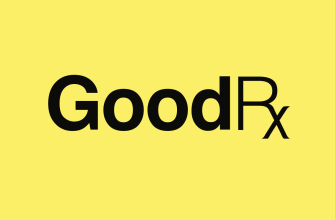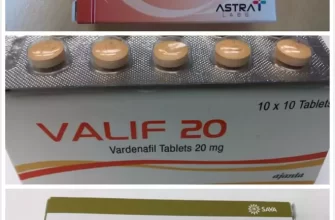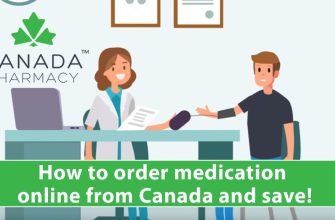Need prescription medications? Consider using a reputable Canadian online pharmacy. Many offer convenient access to a wide range of drugs, often at lower prices than your local pharmacy. This approach can significantly reduce your healthcare costs.
However, careful selection is paramount. Prioritize pharmacies with verifiable licenses and certifications from Health Canada. Look for transparent pricing structures and readily available customer support channels. Check online reviews to gauge other customers’ experiences. A strong track record of secure delivery and reliable customer service are vital.
Before ordering, verify the pharmacy’s legitimacy using the Health Canada website or similar resources. Confirm their physical address and contact information. Understand their return policy in case of issues. Remember to consult your doctor before changing medication or dosage regimens. Safe medication sourcing is a shared responsibility between the patient and the pharmacy.
By taking these steps, you can confidently navigate the online pharmacy landscape and gain access to the medications you need. Always prioritize your health and well-being and conduct thorough research before making a purchase.
- Canadian Pharmacy Online No Script: A Comprehensive Guide
- Understanding the Legality and Risks of Online Pharmacies
- Identifying Legitimate Canadian Online Pharmacies
- Scrutinize the Pharmacy’s Practices
- Understanding Medication Information
- Report Suspicious Activities
- Comparing Prices and Medication Availability
- Medication Availability
- Factors Affecting Price
- Tips for Smart Shopping
- Finding Reliable Sources
- Generic vs. Brand-Name
- Ensuring Secure Online Transactions and Data Protection
- Navigating the Prescription Process Without a Script
- Understanding Your Options
- Steps to Take
- Important Considerations
- Finding Reputable Telehealth Services
- Potential Health Risks and Alternatives to Online Pharmacies
Canadian Pharmacy Online No Script: A Comprehensive Guide
Research thoroughly before choosing a pharmacy. Verify licensing and accreditation with the relevant Canadian authorities. Look for pharmacies with transparent contact information and easily accessible customer reviews.
Compare prices across multiple reputable Canadian online pharmacies. Price discrepancies can be significant. Note that genuine medications often come at a cost reflecting quality control and safety.
Prioritize pharmacies displaying detailed information about their medication sourcing and quality assurance procedures. Understanding their supply chain builds trust.
Check for secure payment gateways (HTTPS) and privacy policies protecting your personal and medical information. Data security is paramount.
Always confirm the legitimacy of medications received. Discrepancies in packaging or labeling could indicate counterfeit drugs. Report suspicious activity to the proper authorities.
Be aware of potential risks associated with buying prescription drugs online without a prescription. Self-medicating can have severe health consequences. Consult your doctor for appropriate medical advice.
Understand that Canadian pharmacies operating legally may still require a valid prescription for controlled substances. Check the specific regulations for the medication you need.
Exercise caution with unsolicited offers or advertisements promising inexpensive medication without a prescription. These may be scams or sell counterfeit products.
If you have questions or concerns, contact the pharmacy’s customer support directly. Evaluate their responsiveness and helpfulness.
Keep records of all your transactions and interactions with the pharmacy. This information is useful if issues arise.
Understanding the Legality and Risks of Online Pharmacies
Always verify a pharmacy’s legitimacy. Check its registration with relevant authorities in its country of operation. The Canadian International Pharmacy Association (CIPA) provides a directory of accredited Canadian online pharmacies; use it as a resource.
Avoid pharmacies lacking a physical address or proper contact information. Legitimate pharmacies openly provide these details.
- Risk of Counterfeit Drugs: Online pharmacies lacking regulation often sell fake medications. These can be ineffective, contain harmful ingredients, or have incorrect dosages, posing serious health risks.
- Privacy Concerns: Submitting personal and medical information online carries risks. Ensure the pharmacy uses secure encryption (HTTPS) and has a transparent privacy policy. Read it carefully before submitting any data.
- Drug Interactions and Side Effects: Online pharmacies may not always provide adequate consultations. This lack of oversight increases the risk of harmful drug interactions or adverse side effects. Always discuss medications with your doctor or pharmacist.
- Quality Control Issues: Proper storage and handling of medications are vital. Unregulated online pharmacies may not maintain suitable conditions, affecting medication efficacy and safety.
- Legal Ramifications: Purchasing medications without a prescription, even from an online pharmacy, is illegal in many countries. This can lead to fines or legal action.
Before ordering online, consult your doctor. They can advise on appropriate medications and potential interactions, minimizing risks associated with online purchases. Obtain a legitimate prescription before purchasing medication online. Only use reputable, verified online pharmacies. This precaution significantly reduces health risks and legal problems.
- Verify pharmacy registration and licensing.
- Confirm secure data transmission (HTTPS).
- Review the pharmacy’s return policy.
- Check customer reviews and testimonials (but be aware of potentially fake reviews).
- Compare prices to those at legitimate local pharmacies.
Remember, your health is paramount. Prioritize safety and legality when acquiring medications online.
Identifying Legitimate Canadian Online Pharmacies
Check the pharmacy’s registration with the Canadian International Pharmacy Association (CIPA). CIPA members adhere to strict standards and are verified.
Verify the pharmacy’s physical address in Canada. A legitimate Canadian pharmacy will have a publicly accessible address. Look for contact information, including a phone number and email address, easily accessible on their website.
Examine the pharmacy’s website for secure connections (HTTPS). Secure websites protect your personal and financial data. Also, look for a clear privacy policy outlining how they handle your information.
Scrutinize the Pharmacy’s Practices
Read online reviews from verified customers. Pay attention to comments about shipping times, customer service, and medication authenticity. Be wary of overwhelmingly positive reviews, as these may be fake.
Confirm the pharmacist’s licensing. Legitimate pharmacies will clearly display the licenses of their pharmacists on their website or provide this information upon request.
Understanding Medication Information
Ensure the website provides detailed information about the medications they sell, including ingredients, dosage instructions, and potential side effects. Avoid pharmacies that lack transparency about their products.
| Check Point | Action |
|---|---|
| CIPA Registration | Verify on CIPA website |
| Physical Address | Locate and confirm address |
| Secure Website | Look for HTTPS |
| Online Reviews | Read multiple reviews |
| Pharmacist Licensing | Confirm licensing information |
| Medication Details | Check for complete product information |
Report Suspicious Activities
Report any suspicious pharmacies to relevant authorities, such as Health Canada. This helps protect other consumers from potentially harmful practices.
Comparing Prices and Medication Availability
Check multiple Canadian online pharmacies for price comparisons. Use a price comparison website or manually compare prices across at least three different sites. Note that pricing fluctuates, so regular checks are recommended.
Medication Availability
Confirm medication availability before placing an order. Many pharmacies list stock levels directly on their product pages. If uncertain, contact customer support – their responsiveness is a key indicator of service quality.
Factors Affecting Price
Generic medications are usually cheaper than brand-name equivalents. Consider the quantity: larger packages often offer better value. Shipping costs can significantly affect the final price; factor these in when comparing.
Tips for Smart Shopping
Look for pharmacies with transparent pricing and clear return policies. Read online reviews focusing on delivery times and customer service. Don’t hesitate to contact support if you encounter issues or need clarification.
Finding Reliable Sources
Prioritize pharmacies with certifications and licenses prominently displayed on their website. Verify their physical address and contact information. Beware of suspiciously low prices, as they may signal counterfeit products or unreliable services. Check the pharmacy’s registration with relevant regulatory bodies. A pharmacy’s online reputation significantly impacts its reliability; consider this.
Generic vs. Brand-Name
Generic medications typically contain the same active ingredients as brand-name drugs, often at a lower cost. Always check with your doctor about suitability.
Ensuring Secure Online Transactions and Data Protection
Verify the pharmacy’s security measures. Look for HTTPS in the website address and a security seal from reputable organizations like McAfee or Norton. This confirms data encryption during transactions.
Check for a privacy policy clearly outlining how your personal and health information is handled. A legitimate pharmacy will transparently explain its data protection practices, including data storage and usage.
Use strong, unique passwords and consider two-factor authentication if offered. This adds an extra layer of security against unauthorized access to your account.
Pay with secure payment methods. Credit cards offer buyer protection, while using PayPal adds another layer of security compared to direct bank transfers.
Beware of suspicious emails or links. Legitimate pharmacies rarely solicit business via unsolicited emails. Verify any communication directly through the pharmacy’s official website.
Review customer testimonials and online reviews before using a new online pharmacy. Positive feedback on security and reliability can be a good indicator.
Report any suspicious activity immediately. If you encounter any issues with a website, contact the pharmacy directly and report any potential security breaches to authorities.
Regularly update your computer’s antivirus software and operating system. This protects against malware that could steal your information.
Use a secure internet connection. Avoid using public Wi-Fi for sensitive transactions, as it may be vulnerable to interception.
Navigating the Prescription Process Without a Script
First, understand that obtaining prescription medications without a valid prescription is illegal in most jurisdictions. This section focuses on legitimate ways to access necessary medications if you lack a current prescription.
Understanding Your Options
- Contact your doctor: Schedule an appointment for a consultation. Discuss your medication needs and any concerns. This is the most straightforward and legal method.
- Use telehealth services: Many online platforms offer virtual consultations with licensed physicians. This can be a convenient alternative to in-person visits, especially if you have a stable internet connection.
- Check for refill options: Some pharmacies allow refills without immediate physician contact if your prescription history is clear and recent. Confirm this directly with your pharmacy.
- Explore medication management programs: Several programs help manage chronic conditions and provide access to medications. Research programs relevant to your health needs.
Steps to Take
- Gather your medical history: Compile a detailed list of your medical conditions, current medications, and allergies. Include dosage information and duration of treatment.
- Choose a reputable provider: Whether it’s a telehealth service or a traditional doctor’s office, verify their credentials and licensing information.
- Clearly communicate your needs: Describe your symptoms, explain why you require the medication, and answer all questions honestly and thoroughly.
- Follow up on your prescription: Confirm the prescription was sent to your chosen pharmacy and check its status regularly. Understand the pharmacy’s policies for pick-up or delivery.
Important Considerations
Remember: Always prioritize your health and safety. Seek professional medical advice. Never obtain medications from unofficial or unregulated sources. Unverified sources pose significant health risks. Misuse or improper use of medication can have serious health consequences. This information is for guidance only and does not constitute medical advice.
Finding Reputable Telehealth Services
- Check for licensing and accreditation.
- Look for reviews and testimonials from other users.
- Verify physician credentials independently.
- Ensure secure communication channels are used.
Potential Health Risks and Alternatives to Online Pharmacies
Avoid online pharmacies without prescriptions. Counterfeit medications are a significant risk; they may contain incorrect dosages, harmful ingredients, or no active drug at all. This can lead to treatment failure, adverse reactions, and potentially life-threatening consequences.
Consider using your primary care physician or a local pharmacy. Your doctor can assess your needs, prescribe appropriate medications, and monitor your progress. Local pharmacies offer a secure way to obtain legitimate medications and receive professional advice.
Explore telehealth services. Many reputable telehealth platforms connect you with licensed doctors for virtual consultations, allowing prescription fulfillment through partnered pharmacies.
Check your insurance coverage. Many insurance plans cover medications obtained through legitimate channels; verifying coverage can help you manage costs and access necessary drugs.
Report suspicious online pharmacies to the relevant authorities. Websites offering medications without a prescription are often illegal and unsafe. Reporting helps protect others from potential harm. Contact the FDA or similar regulatory bodies in your country.
Be aware of medication interactions. Always discuss all medications you take, including over-the-counter drugs and supplements, with your doctor or pharmacist to avoid harmful drug interactions.

